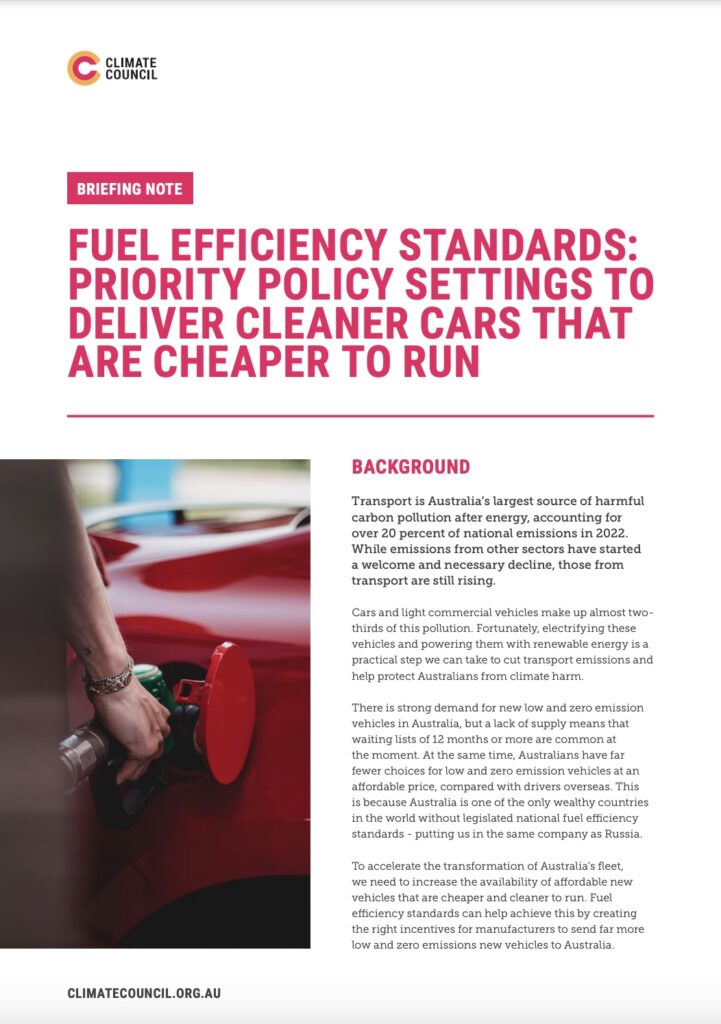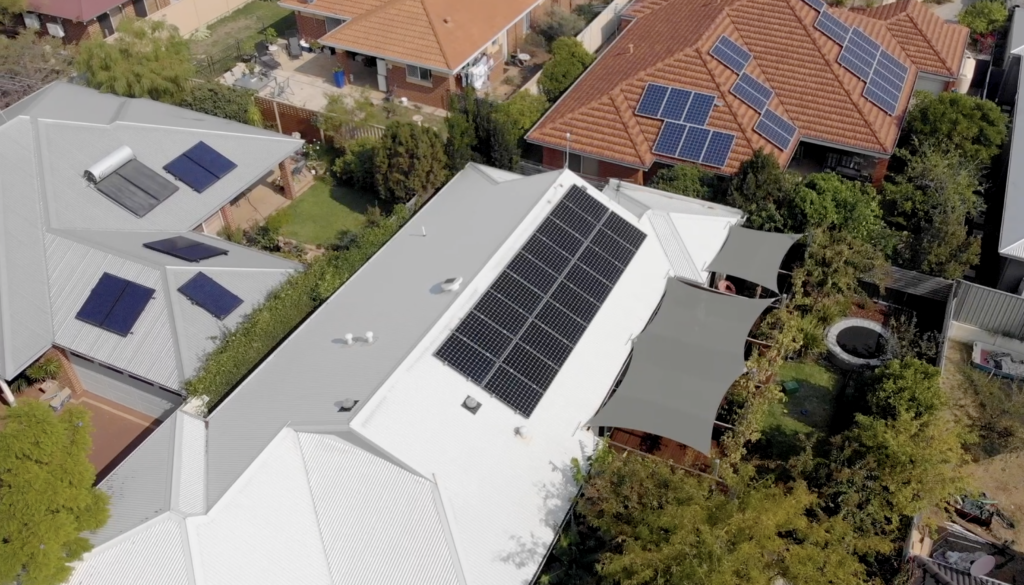Transport is Australia’s largest source of harmful carbon pollution after energy, accounting for over 20 percent of national emissions in 2022. While emissions from other sectors have started a welcome and necessary decline, those from transport are still rising.
Cars and light commercial vehicles make up almost two-thirds of this pollution. Fortunately, electrifying these vehicles and powering them with renewable energy is a practical step we can take to cut transport emissions and help protect Australians from climate harm. There is strong demand for new low and zero emission vehicles in Australia, but a lack of supply means that waiting lists of 12 months or more are common at the moment. At the same time, Australians have far fewer choices for low and zero emission vehicles at an affordable price, compared with drivers overseas. This is because Australia is one of the only wealthy countries in the world without legislated national fuel efficiency standards – putting us in the same company as Russia.
To accelerate the transformation of Australia’s fleet, we need to increase the availability of affordable new vehicles that are cheaper and cleaner to run. Fuel efficiency standards can help achieve this by creating the right incentives for manufacturers to send far more low and zero emissions new vehicles to Australia.
The Climate Council is calling on the Federal Government to deliver strong, competitive and effective fuel efficiency standards that set Australia on a course to deliver maximum benefits to all Australians – including cheaper fuel bills, cleaner air, and protection from further climate harm.
What are fuel efficiency standards?
Fuel efficiency standards aim to limit the greenhouse gas emissions Australia’s fleet of cars release. They do this by creating a maximum annual average level of carbon emissions across a manufacturer’s overall new car sales. Over time, the maximum amount of CO₂ that can be emitted is reduced, meaning car makers must offer more low and zero emissions new vehicles to avoid penalties. Strong fuel efficiency standards are already in place in a range of markets similar to Australia’s, including the USA, United Kingdom and New Zealand.
The Federal Government has committed to introduce fuel efficiency standards for Australia. Climate Council recommends the following policy settings to ensure these are effective in cutting costs for drivers and transport emissions.
Below are the key setting recommendations of this briefing:
Key setting #1 – Set Australia on a clear pathway to all new car sales being zero emissions by 2035 at the latest
Key setting #2 – Align Australia’s fuel efficiency standards with other markets like New Zealand, the United States and United Kingdom
Key setting #3 – Avoid excess credits that undermine the effectiveness of fuel efficiency standards
Key setting #4 – Ensure Australia’s fuel efficiency standards are mandatory and legislated
Key setting #5 – Get strong standards in place as soon as possible











